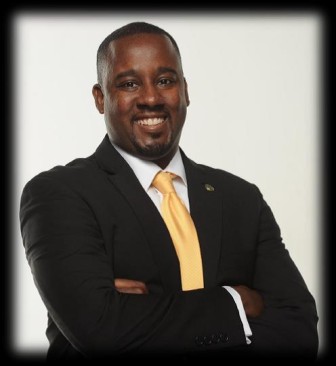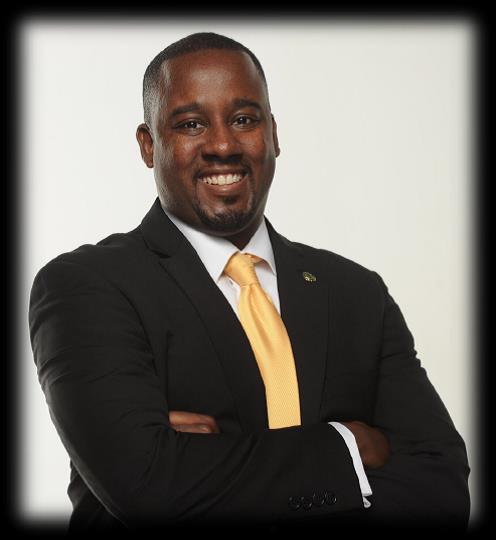This is the third in our newest interview series, On The Record. This week, we spoke with District C Councilor Corey Branch about the importance of open communication and the need to forge public-private partnerships when it comes to job training and affordable housing.

Corey Branch
Corey Branch wasn’t happy with the way people in Raleigh were talking to each other.
“People were talking, but no one was listening,” said Branch.
“I want to work with everyone, establish open lines of communication; in the past, there wasn’t true communication.”
One of the biggest problems with poor communication, Branch said, is that it often leads to people getting bad information.
“I want to make sure people have the right information: the only thing worse than having no information, is having the wrong information,” Branch said.
The problem, he explained, extends not just to making sure people have the most up-to-date information on everything from proposed rezonings to street closures, but to ensuring Raleigh residents are aware of all the services available to them.
“You have conversations about, ‘There aren’t any programs for our youth,'” Branch said.
“But the Raleigh Police Department has had a number of youth programs for years, Parks & Recreation has had programs for our youth; we also have internships available for college students.”
In addition to making sure residents are informed about the business of the City, Branch said it’s just as important to make sure the City is informed about what’s important to its residents. To that end, he said he makes a concerted effort to attend as many neighborhood meetings and events as possible.
“A lot of times we’re triple and quadruple booked,” for meetings and events, Branch said.
“I don’t think any of us has figured out how to clone ourselves yet; until then I’ll just try to do the best I can, and make sure people know I’m available and that they can reach out to me at any time.”
Branch, a senior technical director with AT&T, said he had also requested City staff to look into making Raleigh’s website more user-friendly.
“I want to make it easier for people to find the information that they need; and using technology to solve that is probably one of the major things that can help the City overall.”
Be The Change
A lifelong Raleigh resident — save for four years at North Carolina A&T State University and one year after — Branch first made the decision to run for City Council in 2011.
“What got me interested in City Council was just realizing that, in order to be part of the change you want to see in your community, you have to be involved,” Branch said.
While he has served in various leadership roles throughout his life, from student government in college to his work with the Raleigh Transit Authority and the Wake County Transit Advisory Committee, Branch said he saw a real need for a new kind of representation for Southeast Raleigh.
Defeated in 2011, Branch chose not to run in 2013 — he’d found something he was even more passionate about than helping his community.
“In 2013 I got married; I spent the time with my beautiful wife: that was my focus and why I didn’t run that year.”
Branch’s wife, Chanda, is a teacher in the Wake County Public School System.
By 2015, Branch was ready to run again, and this time, he managed to unseat incumbent Eugene Weeks with 52 percent of the vote.
Despite having worked with transit issues on both a city and county level, Branch said his interest in transit was tied into a larger desire to help improve his community, which also includes things like providing more affordable housing and job training opportunities. Transit, he said, was a key part of connecting citizens to that housing and to those jobs.
“I have an engineering background,” said Branch, who majored in Electrical Engineering at A&T State.
“From that perspective, I see transit as a connectivity issue. I’ve been a user of transit and I’ve always wanted to be involved with the community, and transit is the issue that kind of stuck.”
In his Southeast Raleigh district, Branch said there are a number of key transportation issues that still need to be addressed.
“The biggest thing is improving the frequency of the routes that we currently have, but also increasing coverage to some areas like Rogers Lane and Battle Ridge; they’re both parts of my district, a lot of my constituents live there, but bus service has not reached out to them.”
Exacerbating the problem, Branch said, was the City’s habit of encouraging and allowing affordable housing developments in areas not currently served by public transit.
Building Homes, Owning Homes
“We have a lot of citizens that need jobs,” Branch said.
“We also realize that as the area grows and homes are built, there’s a lot of opportunities for framers, for masonry people, but they need the training opportunities. It comes down to a public-private partnership, working the county government and the state government as well.”
“The City of Raleigh didn’t dig this hole by ourselves, and we’re not going to be able to dig out of it by ourselves.”
In addition to training programs, Branch said he also hopes to work with local and national retailers to create more direct job opportunities within his Southeast Raleigh.
Despite the opening of a Save a Lot at the Shoppes at Pine Hills on Martin Luther King last year, the area remains a food desert, Branch said, and is bereft of many of the retail options found in other areas of the city.
“When I can drive down one street in the city and pass four, five grocery stores and then I drive down another one and don’t see anything for two or three miles; that causes concern.”
“We talk about the economics of, can a grocery store survive,” Branch said.
“When I look around my district, I see people eating, I see people wearing clothes: they definitely have money to spend, so it doesn’t make sense.”
Due to the ever-increasing scarcity and subsequent rising prices of Raleigh real estate, many of those who may eventually find work, in the trades or elsewhere, would likely have difficulty affording a home in many of the very same neighborhoods they’d be working in.
As with job training, Branch feels there are a number of public-private opportunities when it comes to creating affordable places for people to live.
In the last few years, the City has been acquiring and tearing down old and dilapidated properties it throughout Southeast Raleigh, which has created a number of opportunities the City hopes to leverage, Branch said.
“Recently, City staff in the College Park area did a walk through; we talked about options for affordable housing, what it looks like, what the options are, whether we should be building duplexes, single-family homes, apartments: we’re looking at all available options out there in the market.”
“We want to do what we can to help the most people live comfortably, and the path to a healthy community is through home ownership,” Branch said.
While the City should certainly be increasing the number of denser, more affordable housing options, Branch said they also needed to ensure that this housing was not concentrated in just one particular part of the City and that efforts are put in place to preserve the neighborhoods in which they are built.
“When we look at affordable housing, we cannot socially and economically segregate our city: we have to make sure we do affordable housing across all of Raleigh,” Branch said.
“A lot of my district is majority-residential already, so you know just looking at ways we can have the least impact; we talk about how green the area is, how beautiful it is, we want to make sure as we grow that we don’t destroy our trademark that makes us so special.”
Still, Branch said, these concerns shouldn’t serve as the only driving force when it comes to making decisions for the City.
“It’s tough, but it’s something that — you know, not be cliche-ish — but I learned a long time ago, you can be on the right track, but if you’re standing still, you can still get run over.”
“It’s a matter of trying to grow the City and trying not to be stagnant.”
